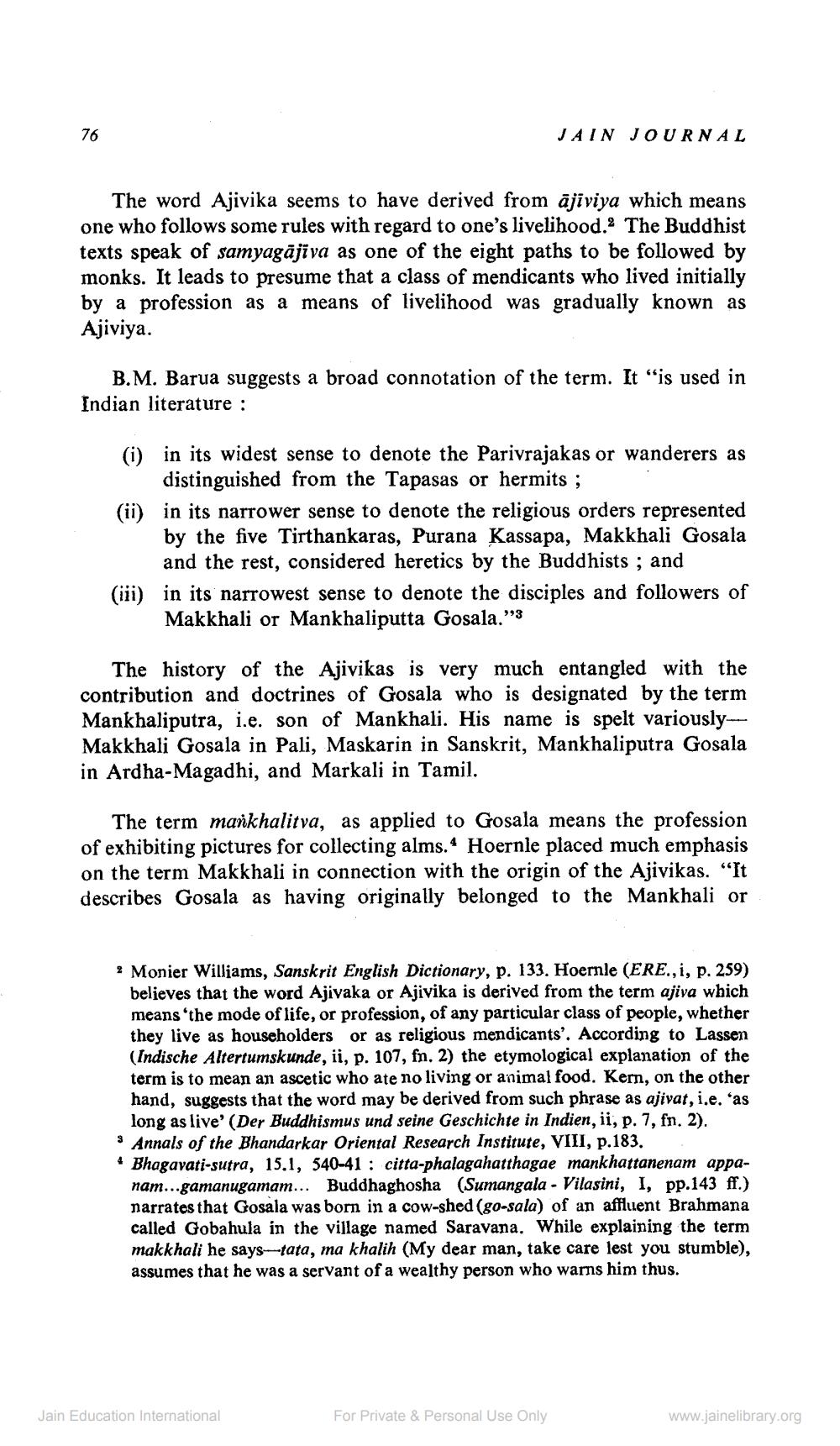________________
JAIN JOURNAL
The word Ajivika seems to have derived from ājiviya which means one who follows some rules with regard to one's livelihood. The Buddhist texts speak of samyagājīva as one of the eight paths to be followed by monks. It leads to presume that a class of mendicants who lived initially by a profession as a means of livelihood was gradually known as Ajiviya.
B.M. Barua suggests a broad connotation of the term. It is used in Indian literature :
(i) in its widest sense to denote the Parivrajakas or wanderers as
distinguished from the Tapasas or hermits ; (ii) in its narrower sense to denote the religious orders represented
by the five Tirthankaras, Purana Kassapa, Makkhali Gosala
and the rest, considered heretics by the Buddhists; and (iii) in its narrowest sense to denote the disciples and followers of
Makkhali or Mankhaliputta Gosala."
The history of the Ajivikas is very much entangled with the contribution and doctrines of Gosala who is designated by the term Mankhaliputra, i.e. son of Mankhali. His name is spelt variouslyMakkhali Gosala in Pali, Maskarin in Sanskrit, Mankhaliputra Gosala in Ardha-Magadhi, and Markali in Tamil.
The term markhalitva, as applied to Gosala means the profession of exhibiting pictures for collecting alms. * Hoernle placed much emphasis on the term Makkhali in connection with the origin of the Ajivikas. “It describes Gosala as having originally belonged to the Mankhali or
2 Monier Williams, Sanskrit English Dictionary, p. 133. Hoernle (ERE., i, p. 259) believes that the word Ajivaka or Ajivika is derived from the term ajiva which means the mode of life, or profession, of any particular class of people, whether they live as householders or as religious mendicants'. According to Lassen (Indische Altertumskunde, ii, p. 107, fn. 2) the etymological explanation of the term is to mean an ascetic who ate no living or animal food. Kern, on the other hand, suggests that the word may be derived from such phrase as ajivat, i.e. 'as
long as live' (Der Buddhismus und seine Geschichte in Indien, ii, p. 7, fn. 2). * Annals of the Bhandarkar Oriental Research Institute, VIII, p.183. 4 Bhagavati-sutra, 15.1, 540-41 : citta-phalagahatthagae mankhattanenam appanam...gamanugamam... Buddhaghosha (Sumangala - Vilasini, I, pp.143 ff.) narrates that Gosala was born in a cow-shed (go-sala) of an affluent Brahmana called Gobahula in the village named Saravana. While explaining the term makkhali he says--tata, ma khalih (My dear man, take care lest you stumble), assumes that he was a servant of a wealthy person who wams him thus.
Jain Education International
For Private & Personal Use Only
www.jainelibrary.org




